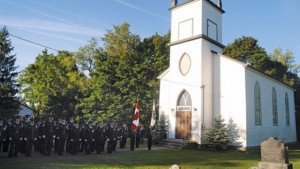I recently received this email to which I think it might be interesting to respond publicly:
You know, the ACoC isn’t some monolithic body, right? There are many evangelicals, conservatives, and traditionalists who’ve stayed within the ACoC. Hell, there’s even folks like myself still being ordained there (by “like myself” I mean, young, straight, married, evangelical). How does that fit within your universe?
Contrary to what my correspondent suspects, I don’t have the luxury of inhabiting my own universe; after all, if this were my universe there would be no ACoC.
I dispute that there are “many evangelicals, conservatives, and traditionalists who’ve stayed within the ACoC”. There are some, obviously, but most have already left; the few that remain tend to protest too much and form small, quivering, impotent huddles like the Anglican Communion Alliance; their stated aim may be to staunch the liberal tide but no-one, least of all the ACoC, takes them seriously. There are even some orthodox bishops for whom I have some sympathy: Bishop Bill Anderson, for example; I interviewed him here and here.
No matter how much conservative holdouts might try to convince themselves otherwise, the ACoC is a monolithic body: it is an organization that forces assimilation into the dominant culture. It pretends to be inclusive but clergy who resist the liberal drift in any serious way are isolated, ostracised and generally not hired in the first place. The main purpose of any who stubbornly remain is to bolster the illusion of the ACoC’s tolerance and inclusion when they are conveniently paraded as tame conservatives at ecclesiastical photo ops.
For many years my own parish maintained a dignified isolation from its home diocese, the Diocese of Niagara. We ignored them and they ignored us – unless they needed more money, of course. Eventually, though, it becomes apparent that this is a dishonest relationship; how can you remain a subsidiary of an organisation with whom you fundamentally disagree? If you wish to retain any integrity, you can’t.
So, to my correspondent: my dear boy, if you, as you say, are “young, straight, married, evangelical”, get out now before you are assimilated.
Like this:
Like Loading...
 Read it all here:
Read it all here:
